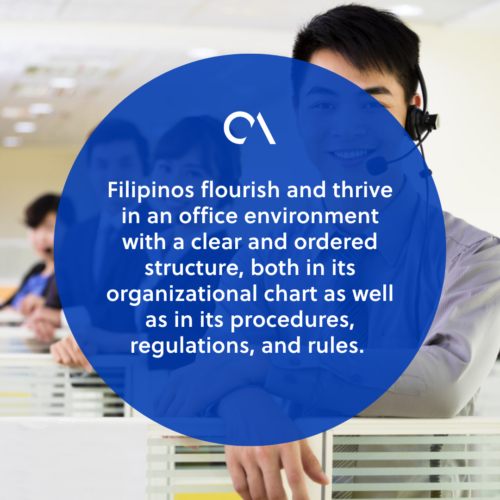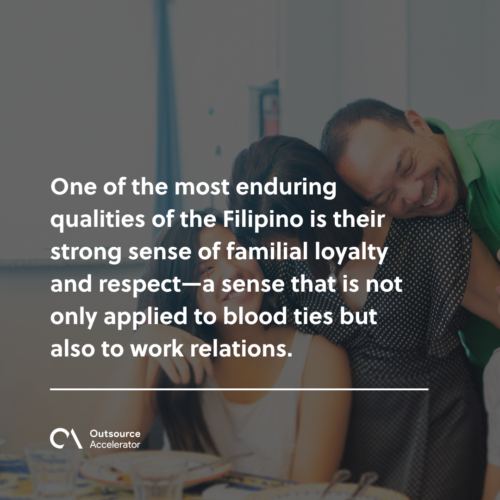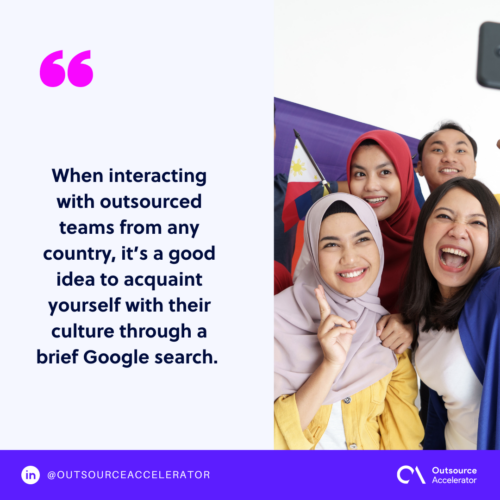Cultural differences: intelligent business owners also needs some tutoring

Businesses, no matter their size or which industry they belong to, stand to reap a lot of benefits from outsourcing. The most significant of these benefits is, arguably, freeing up manpower and time so that the company’s in-house staff can focus on activities that are critical to growing the business itself. This alone is enough reason for any business owner to look into this trusted business strategy.
However, this isn’t to say that outsourcing doesn’t have its potential downsides, because it has. For example, working with an outsourced workforce requires a bit of adjustment, as your in-house staff may need to collaborate or work closely with a team from a different cultural background. No matter how intelligent or culturally-sensitive business owners may see themselves to be, they still need to account for and navigate around cultural differences in order for them to truly take advantage of the outsourcing effort. In this article, we’ll be talking about the cultural differences that you may encounter when outsourcing to the Philippines and how to deal with them.
Filipinos want a rigid and structured office environment.
Filipinos flourish and thrive in an office environment with a clear and ordered structure, both in its organizational chart as well as in its procedures, regulations, and rules. While having a flat hierarchy or an ‘open-office’ structure may be popular elsewhere, this is not something that Filipinos like much. They prefer if the specifics of the job are completely laid out for them: who exactly their superiors are, what their job entails, what’s expected of them as employees, what they can and can’t do at work, a clear idea of where the company’s headed, and their main objectives – everything that they might need to know about their office life, basically. Above all else, they also want to know what they need to do to progress in their career.

While this rigid structure may seem confining or even choking for some, it’s generally perceived the other way around in the Philippines. Laying these information out beforehand is seen as a sign that the business truly knows what it’s doing and that it’s stable enough to keep its staff employed long-term. Filipinos may look forward to frequent formal reviews and tips on how they can improve their key performance indicators, especially if they feel that they’ve been lacking in their performance. Use this as a chance to motivate them personally and to figure out how problem employees should be dealt with.
Filipinos see the office as a second home and their coworkers as a second family.
One of the most enduring qualities of the Filipino is their strong sense of familial loyalty and respect—a sense that is not only applied to blood ties but also to work relations. Often, they see officemates that they interact with regularly as a part of their extended family. What this particular sense of family means in a business setting is obvious. For one, you can expect your Filipino workforce to be loyal to you and to their coworkers. They’ll also see their employment in your company as not just a way to earn a living, but as a personal responsibility—they are a part of your company and an active contributor to its mission. They care about your company and its successes and the challenges it faces.
There are downsides to this, however, as your employees may take work-related incidents more personally. Public shaming, for example, may be interpreted as an unforgivable slight to their character. Berating them in public may be equivalent to effectively shaming them in front of their ‘extended family’ and making them lose face and dignity.
If you must criticize or single them out, make sure to do it behind closed doors. When addressed privately, employees usually take any criticism you can throw at them and do whatever it takes to make up for their perceived failings.

Filipinos value other aspects of the job more than just the paycheck.
Most Filipinos are working not just for themselves, but for families that they need to support. As such, it’s a bit of a misnomer to think that they’re not motivated by money at all. However, Filipinos do value certain aspects of the job more than the amount of zeros listed on their bi-monthly paycheck.
For instance, they appreciate and work better in a more comfortable work environment. A climate-controlled office is definitely desirable, as the Philippines can get unbearably hot and humid at times. A pantry with a refrigerator and microwave oven is essential as well, as many Filipinos pack their own lunch in order to save both time and money. Aside from these, Filipinos also like having opportunities to bond with their coworkers. Activities and events like summer outings or even just a monthly all-hands dinner can help keep your Filipino staff motivated and make them feel like they’re a family.
Having the ability to take sick and emergency leaves is also a great benefit. Employees might take emergency leaves if a family member has suddenly fallen ill or gotten into an accident. Sure, it may affect deadlines and such, but don’t worry—your Filipino workforce will immediately pick up the slack, and the employee in question will also be working double-time to help out once they return from their leave. They may even ask to work from home, just to be able to contribute while attending to the said emergency.
Finally, a relaxed office environment will encourage employees to stay with the company longer. This doesn’t mean you have to be lax as an employer, just that you have to make an effort to keep the office environment free of toxicity, fear, and oppression. Most Filipino employees are fine with tight deadlines so long as they’re not being micromanaged. They accept criticism well so long as they’re not being publicly shamed or denigrated for their mistakes or faults. They can also take on occasional long hours as long as they know that their hard work is being recognized and rewarded and that they feel valued as an employee.
How to easily overcome cultural differences
Business owners who are new to outsourcing will need to learn a few things when it comes to dealing with Filipino employees. It’s important to note that everyone has a different personality and may have a different take on office policies. In general, though, you can provide a comfortable and work-conducive office environment for your outsourced staff by observing the following best practices:
- Communicate as often and as clearly as you can. Always make an effort to be as clear and as detailed as possible when communicating with your outsourced staff. Communicating consistently and regularly with your team encourages your employees to speak up and ask for clarifications if they’re confused about a particular directive or objective. Explaining your side as best as you can also ensures that you are all on the same page, thereby eliminating guesswork, confusion, and extensive revisions.
- Look into their cultural dos and don’ts. When interacting with outsourced teams from any country, it’s a good idea to acquaint yourself with their culture through a brief Google search. Research just enough to avoid common faux pas that could end up jeopardizing your work relationship with them. Of course, once you are working with them extensively, it’s advisable to immerse yourself in their culture as best as you can. Make an assignment out of it if you like.

- Share honest feedback responsibly. Some cultures, especially those in Asia, are very careful with their language, especially in public settings. While being unabashedly frank may be seen as being bold, honest, and outspoken in the West, it means something different entirely in the East—you could come off as brash, uncouth, and inconsiderate of people’s feelings. When you must share feedback, do so in such a way that is honest and direct while being respectful of the team’s dignity. If someone needs singling out, make sure to do it in private. Frequently sharing feedback also eliminates confusion and signal loss between you and your team, so that’s always a plus.
- Be sensitive. Filipinos have a long list of holidays per year. If you can’t afford to reduce work during these times, you can use incentives to motivate your workforce to come to work instead of taking a vacation. Being sensitive to such cultural quirks can and will pay dividends in the end, both in revenue and in loyalty.
Conclusion
Taking another country’s culture into consideration when figuring out office dynamics can be a bit of work, but it can go a long way in improving your work relationship with your outsourced staff and maximizing their productivity. We at Outsource Accelerator can help you in this regard, and in every step of matching your company with the perfect outsourcing firm. Contact us now and avail of our affordable consultant programs to get you up to speed.







 Independent
Independent




